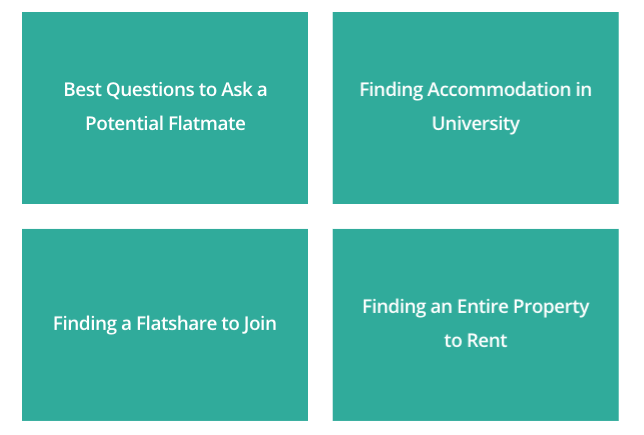We’ve teamed up with Homely from Australia to share tips anyone looking to find a flatshare in Australia. You can also check out our comprehensive list of best questions to ask a flatmate.
If can also check out our resources on finding a room in London by following this link.
—
How to find a new housemate in Australia.
More and more people in Australia are opting to live in share houses due to housing and rental unaffordability, low rental vacancy rates, the soaring cost of living and as an avenue to save for a home of their own.
Australia’s largest share accommodation site flatmates.com.au, reports a record number of Aussies seeking rooms in shared accommodation.
Early in 2016 flatmates.com.au CEO, Thomas Clement reported a 60 per cent increase in site traffic compared to 2015, which equated to a 54 per cent increase in users.
When living in shared accommodation it’s so important to be able to find a new housemate quickly when someone decides to move on from your shared living arrangement, ideally in time to cover the shared cost of your next rent and utility payments.
Here’s some advice about the best ways to go about finding a good housemate that will fit seamlessly into your share house.

Where to look:
Friends and family- The best place to start out is by talking to the people you already know and trust and seeing if they can recommend or know of anyone looking for a room to rent in your area.
Get social- Share your room for rent with your social network on Facebook and Twitter. Try creating a Facebook event including photos, the cost of rent and other details of the home, and asking your friends to invite others who may be interested.
Online classifieds- If you have no luck with family members and your social peeps, try using online classifieds and matching systems. There are a number of great free portals where you can post housemate wanted ads, such as flatmates.com.au, flatmatefinders.com.au and au.easyroommate.com.
Local universities- If your home is close to a university or college you could also try posting on that particular institution’s student Facebook page or check their website for a student accommodation listing service.
Remember to always be honest about your house, fellow housemates and the type of housemate you’re looking for in the advertisement. If you can’t stand cigarette smoke, cats and loud parties, save yourself the time and the headache of dealing with it later and say so from the get go.
Key questions to ask:
Once you have a short list of candidates, the next thing you’ll need to do is set up inspections of the home and interview your prospective roomies.
What do they do for a living? What hours do they work? From these questions you’ll be able to suss out how a person will fit into you and your housemates’ day-to-day schedules, this is especially important if you’re sharing a bathroom. You’ll also get an idea of their income, whether they’ll be able to make rent each month and whether or not the rent will be a stretch or well within their means.
How long do they plan on staying? Are they willing to co-sign the lease? These questions will help you to make sure the candidate is committed to staying for the duration of the lease. It’s also a good sign if they’re willing to co-sign the lease to protect you and the other housemates from a sudden exit.
Do they have any pets or plan on getting a pet? For many landlords having pets in their property is a non-negotiable. If you’re in this situation, it’s very important to make sure your potential housemate is aware of the no pets policy. Also some other people may simply prefer not to live with pets in their home due to allergies, cleanliness or noise.
Will they be having overnight guests? This can be a slightly awkward one to talk about with someone you’ve just met, but it’s a very important to establish a policy on sleepovers from the outset. You need to find out if someone plans on having their partner stay over more than 5 nights a week or if they’re single and intend on bringing different people back to stay frequently, which can be a safety concern.
What do they like to do to have fun/ relax/ socialise? This is a delicate way to check whether your prospective housemate will be throwing wild parties, and whether smoking, drinking or drugs are a part of their life. It’s also a good way to see if they’ll fit into the culture of your share house and if they have any things in common with yourself and other roommates, like cooking, TV shows, musical instruments, sports and hobbies.
Do they have references? Checking in with your candidate’s references will be one of the best things you can do to protect yourself from a housemate from hell. Ask them for references from past living arrangements and give them a call asking for honest feedback about the candidate. If a potential housemate has no references that’s a big red flag.
Always pay your due diligence before settling on a new housemate, as at the end of the day you will literally have to live with your decision every day. We hope our tips put you on the right path to finding the ideal housemate for your shared living arrangement.
Author bio:
Larissa Gardner is a blogger, social media strategist and marketing coordinator at arguably Australia’s best looking real estate website Homely.com.au. With over 340K listings and 500K local reviews and insights, Homely is a faster and easier way to search for property to buy and rent in Australia.
This article was originally published on the Homely Advisor Blog. Read the original article here.
